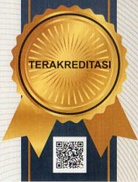- Focus and Scope
- Section Policies
- Peer Review Process
- Publication Frequency
- Open Access Policy
- Archiving
- Publication Ethics
- Plagiarism Policy
- Ethical Guidelines for the Use of Artificial Intelligence in Preparing Manuscript
Focus and Scope
JSHP embodies research articles including (1) Business and Management, (2) Banking and Finance, (3) Vocational Education, (4) Didactics in Higher Education, (5) Tourism and Hospitality Management, and (6) Social Sience.
Section Policies
Articles
Business and Management
Banking and Finance
Vocational Education
Didactics in Higher Education
Tourism and Hospitality Management
Public Policy
Social Science
Peer Review Process
Articles submitted to JSHP (Jurnal Sosial Humaniora dan Pendidikan) will be evaluated through 2 stages of review, i.e., pre-review by the editorial team, and substance review by reviewers.
The pre-review of the article is done by the editorial team to review the conformity of the article with the focus and scope of the journal as well as the journal style and specific JSHP writing guidelines. Duration of review between 2-3 weeks.
Substantial double-blind reviews are performed by at least 2 reviewer. Duration of review between 1-2 weeks. If desired, the reviewer may request a re-review after the author revises his/her article.
The decision whether accepted or declined the article to be published is authorized by the editor based on recommendations from reviewers. Articles that have been declared accepted and have been in-layout will be published in the In Progress issue before the regular issue is published on schedule so they can be indexable and citable immediately.
If you would like to become a reviewer for JSHP journal, please then confirm to us by email or WA (jsh@poltekba.ac.id/ WA 081352168498). We will register you as a Reviewer and an Author into JSHP journal within 3 working days. Your account information, i.e. username and password, will be delivered to your email.
Publication Frequency
JSHP (Jurnal Sosial Humaniora) is published twice a year, in January and July.
Open Access Policy
This journal is an open-access journal that provides immediate, worldwide, barrier-free access to the full text of all published articles without charge readers or their institutions for access. Readers have the right to read, download, copy, distribute, print, search, or link to the full texts of all articles in the JSHP (Jurnal Sosial Humaniora dan Pendidikan). This journal provides immediate open access to its content on the principle that making research freely available to the public supports a greater global exchange of knowledge.
Archiving
This journal utilizes the LOCKSS system to create a distributed archiving system among participating libraries and permits those libraries to create permanent archives of the journal for purposes of preservation and restoration. More...
Publication Ethics
Ethical Guideline for Journal Publication
JSHP: Jurnal Sosial Humaniora dan Pendidikan, with p-ISSN: 2580-5398, e-ISSN: 2597-7342, is a peer- reviewed national/international journal. This statement clarifies the ethical behavior of all parties involved in the act of pub- listing an article in this journal, including the Author(s), the Editor in Chief, the Editorial Board, the peer- reviewed, and the publisher.
The publication of an article in a peer-reviewed JSHP journal is an essential building block in the development of a coherent and respected network of knowledge. It is a direct reflection of the quality of the work of the authors and the institutions that support them. Peer-reviewed articles support and embody the scientific method. It is therefore important to agree upon standards of expected ethical behavior for all parties involved in the act of publishing: the author, the journal editor, the peer reviewer, the publisher and the society.
Center of Research and Community Service of Balikpapan State Polythecnic as publisher of JSHP journal takes its duties of guardianship over all stages of publishing extremely seriously and we recognize our ethical and other responsibilities. We are committed to ensuring that advertising, reprint or other commercial revenue has no impact or influence on editorial decisions.
Publication decisions
The editor of the JSHP journal is responsible for deciding which of the articles submitted to the journal should be published. The validation of the work in question and its importance to researchers and readers must always drive such decisions. The editors may be guided by the policies of the journal's editorial board and constrained by such legal requirements as shall then be in force regarding libel, copyright infringement and plagiarism. The editors may confer with other editors or reviewers in making this decision.
Fair play
An editor at any time evaluates manuscripts for their intellectual content without regard to race, gender, sexual orientation, religious belief, ethnic origin, citizenship, or political philosophy of the authors.
Confidentiality
The editor and any editorial staff must not disclose any information about a submitted manuscript to anyone other than the corresponding author, reviewers, potential reviewers, other editorial advisers, and the publisher, as appropriate.
Disclosure and conflicts of interest
Unpublished materials disclosed in a submitted manuscript must not be used in an editor's own research without the express written consent of the author.
Duties of Reviewers
Contribution to Editorial DecisionsPeer review assists the editor in making editorial decisions and through the editorial communications with the author may also assist the author in improving the paper.
PromptnessAny selected referee who feels unqualified to review the research reported in a manuscript or knows that its prompt review will be impossible should notify the editor and excuse himself from the review process.
ConfidentialityAny manuscripts received for review must be treated as confidential documents. They must not be shown to or discussed with others except as authorized by the editor.
Standards of ObjectivityReviews should be conducted objectively. Personal criticism of the author is inappropriate. Referees should express their views clearly with supporting arguments.
Acknowledgement of SourcesReviewers should identify relevant published work that has not been cited by the authors. Any statement that an observation, derivation, or argument had been previously reported should be accompanied by the relevant citation. A reviewer should also call to the editor's attention any substantial similarity or overlap between the manuscript under consideration and any other published paper of which they have personal knowledge.
Disclosure and Conflict of InterestPrivileged information or ideas obtained through peer review must be kept confidential and not used for personal advantage. Reviewers should not consider manuscripts in which they have conflicts of interest resulting from competitive, collaborative, or other relationships or connections with any of the authors, companies, or institutions connected to the papers.
Duties of Authors
Reporting standardsAuthors of reports of original research should present an accurate account of the work performed as well as an objective discussion of its significance. Underlying data should be represented accurately in the paper. A paper should contain sufficient detail and references to permit others to replicate the work. Fraudulent or knowingly inaccurate statements constitute unethical behavior and are unacceptable.
Data Access and RetentionAuthors are asked to provide the raw data in connection with a paper for editorial review, and should be prepared to provide public access to such data (consistent with the ALPSP-STM Statement on Data and Databases), if practicable, and should in any event be prepared to retain such data for a reasonable time after publication.
Originality and PlagiarismThe authors should ensure that they have written entirely original works, and if the authors have used the work and/or words of others that this has been appropriately cited or quoted.
Multiple, Redundant or Concurrent PublicationAn author should not, in general, publish manuscripts describing essentially the same research in more than one journal or primary publication. Submitting the same manuscript to more than one journal concurrently constitutes unethical publishing behavior and is unacceptable.
Acknowledgement of SourcesProper acknowledgment of the work of others must always be given. Authors should cite publications that have been influential in determining the nature of the reported work.
Authorship of the PaperAuthorship should be limited to those who have made a significant contribution to the conception, design, execution, or interpretation of the reported study. All those who have made significant contributions should be listed as co-authors. Where there are others who have participated in certain substantive aspects of the research project, they should be acknowledged or listed as contributors. The corresponding author should ensure that all appropriate co-authors and no inappropriate co-authors are included on the paper and that all co-authors have seen and approved the final version of the paper and have agreed to its submission for publication.
Hazards and Human or Animal SubjectsIf the work involves chemicals, human, animals, procedures or equipment that have any unusual hazards inherent in their use, the author must clearly identify these in the manuscript.
Disclosure and Conflicts of InterestAll authors should disclose in their manuscript any financial or another substantive conflict of interest that might be construed to influence the results or interpretation of their manuscript. All sources of financial support for the project should be disclosed.
Fundamental errors in published worksWhen an author discovers a significant error or inaccuracy in his/her own published work, it is the author’s obligation to promptly notify the journal editor or publisher and cooperate with the editor to retract or correct the paper.
Plagiarism Policy
- Plagiarism and self-plagiarism are not allowed.
- The authors should ensure that they have written entirely original works, and if the authors have used the work and/or words of others that this has been appropriately cited or quoted.
- An author should not in general publish manuscripts describing essentially the same research in more than one journal or primary publication. Submitting the same manuscript to more than one journal concurrently constitutes unethical publishing behavior and is unacceptable.
- Proper acknowledgment of the work of others must always be given. Authors should cite publications that have been influential in determining the nature of the reported work.
We are using C.O.P.E. flowchart to make an action on plagiarism
Ethical Guidelines for the Use of Artificial Intelligence in Preparing Manuscript
Authors may use Artificial Intelligence (AI) tools to support writing, editing, or data analysis, provided that their use is transparently disclosed. Human authors remain fully responsible for the accuracy, originality, and integrity of the work. AI-generated content must not include fabricated data or plagiarized material, and all outputs must be critically reviewed for bias and factual correctness. AI cannot be credited as an author, and its role should be acknowledged appropriately. The ethical use of AI must uphold academic honesty, accountability, and respect for data privacy throughout the publication process.




